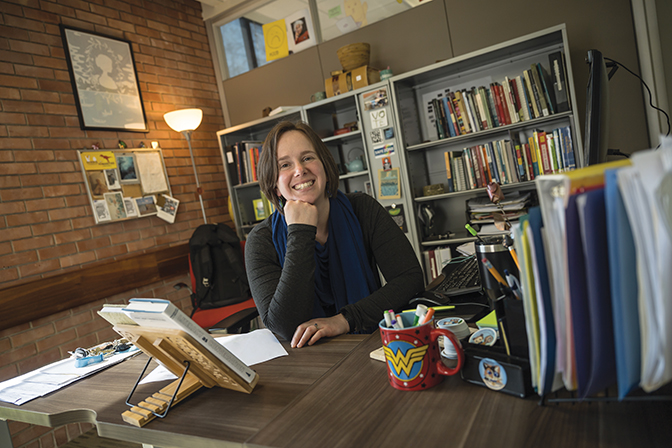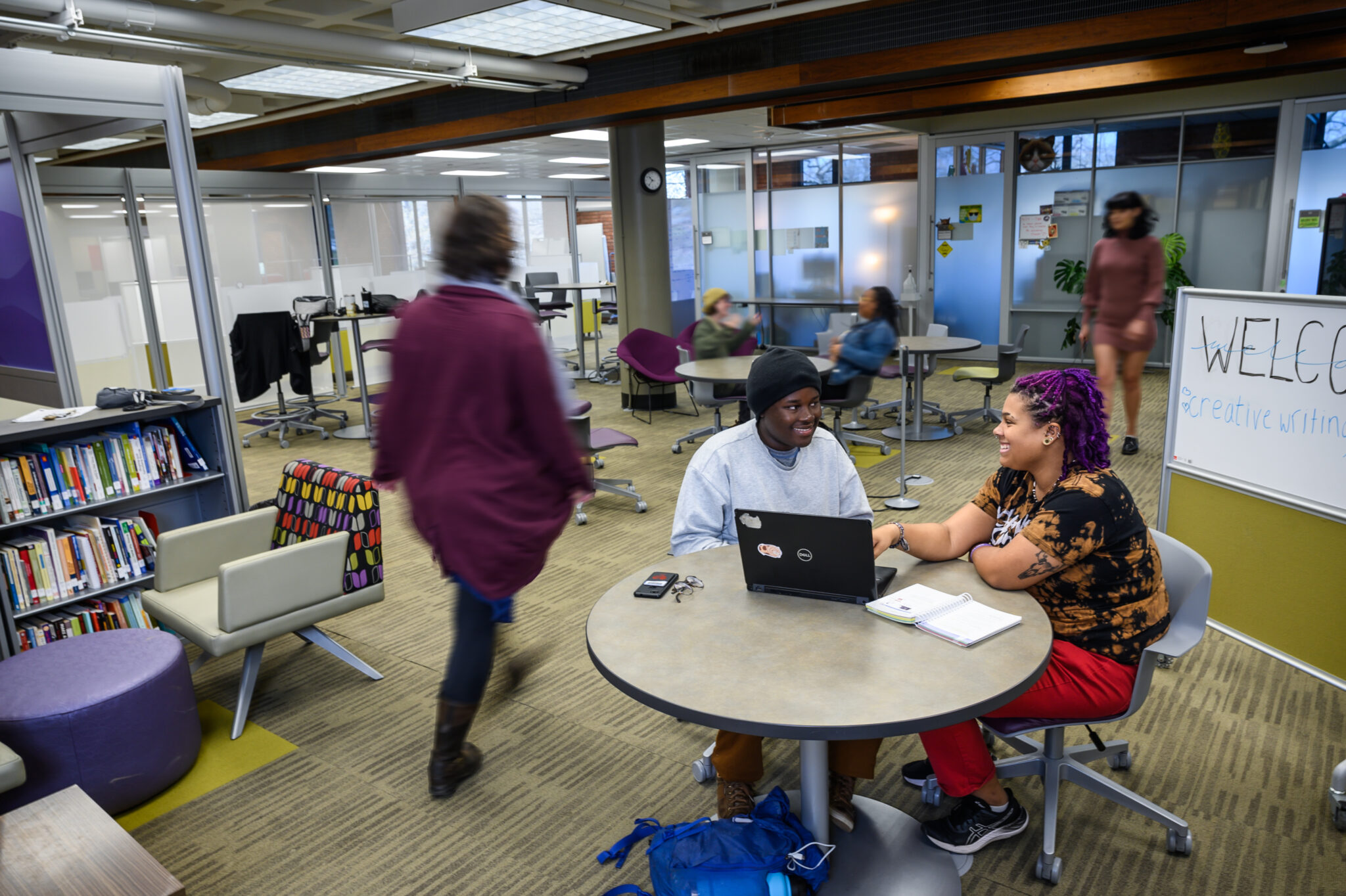Writing Resources students help peers become better writers
Berea student Leeroy ’23 doesn’t know how he would have made it through college without the support of Writing Resources.
“I don’t like the writing process, and the consultants helped me develop a more efficient writing style,” he said. “I tend to include multiple perspectives, and they helped me narrow it down to one topic. It has elevated all of my writing.”
Leeroy, a senior Biology major, originally consulted with the Writing Resources staff about a technical paper for a law class his first year and has since sought feedback on other papers, scholarship applications and his personal statement for medical school. Receiving scholarships, with Writing Resources assistance, has been essential to his experience at Berea.
Myasia Watson ’22 is a Berea alum who utilized Writing Resources every semester of college. She continues to benefit while studying in the Master of Social Work program at West Virginia University.
“There was a big leap in writing from high school to college,” Watson said. “I am really bad at grammar, and the consultants’ explaining why they were making changes really prepared me for graduate school.”

These students are not alone. According to Dr. Amy Nichols, director of Writing Resources, the staff serves 450 students per year through more than 1,000 individualized consultations. That is more than a quarter of the Berea College student body. They are welcome to consult on any writing piece, from a capstone project to a love letter.
Berea has had some form of writing assistance program since the 1980s. Writing Resources is easily accessible, conveniently housed in the basement of the campus library. Along with comfortable furniture and space for conversations, the space hosts a display of writing tip sheets covering all aspects of the art and skill of good writing.
Beyond one-on-one sessions with students, consultants lead more than 50 workshops a year. Professors can request a variety of presentations including integrating sources, plagiarism, introduction to Writing Resources and styles of citations. Student leaders personalize them for each class, taking into account what they are currently studying.
Many students are first exposed to the program during their required general studies classes (GSTR), which are mandatory all four years at Berea. The required research paper gets longer each year, from five pages at first to 20 pages as a senior.
“These are massive research papers, and most GSTR classes are not taught by writing professors,” explains Callista ’23, Writing Resources student labor manager. “It is important that students have another avenue of support that is not the internet.”
Writing Resources offers that support in a third space, utilizing a student-centered, peer-to-peer model. A peer-led environment can feel safer, and can foster a different kind of conversation, than an expert-led one.
It is easier to be more vulnerable about writing and accept feedback from other students. They can genuinely talk to us and not conceal parts of themselves to seem professional. It is not a stiff academic space.
Callista ’23
“It is easier to be more vulnerable about writing and accept feedback from other students,” Callista said. “They can genuinely talk to us and not conceal parts of themselves to seem professional. It is not a stiff academic space.”
It is important for leaders that students have ownership and agency in the consulting process. That means meeting them where they are and following their lead in sessions. Consultants guide gently with questions: What would you like help with? What are your goals? How do you want this paper to be received? The process focuses on what the student wants to do with this writing in the moment.
Through extensive training, consultants gain College Reading and Learning Association certification as tutors. It covers not just the nuts and bolts of basic grammar, how to organize an essay and taking a paper to the next level, but the soft skills necessary to make students feel welcome and supported in one-on-one sessions.
“Our student-oriented training work reminds consultants we are working with a person, not just a paper,” Callista said.
Callista has worked at Writing Resources for three years as part of her labor assignment. She particularly remembers one student who arrived at her consultation stressed and anxious about her assignment. Callista was able to reassure her, calm her down, and work through the problem with her. Through subsequent meetings, the two developed a productive and dynamic working relationship.
“To watch her writing get better was so amazing,” Callista said. “At her last appointment I was able to say her work was perfect and didn’t need anything. It is rewarding to really guide somebody and help them.”
Ultimately, Writing Resources staff are not grading, but supporting, student writing. “The consultation is actually a very empowering process,” Leeroy said. “At the Writing Center, my vision is understood. I am understood.”


